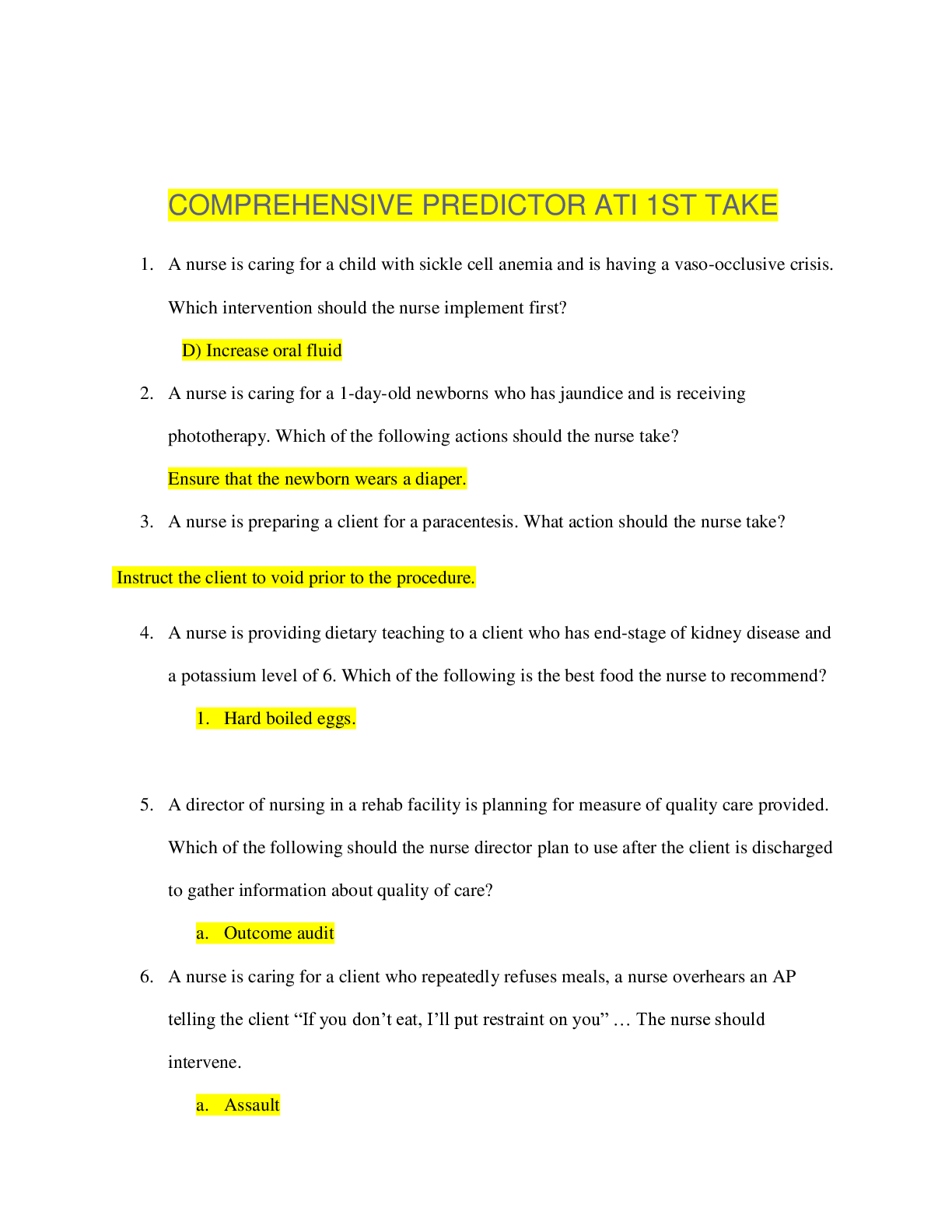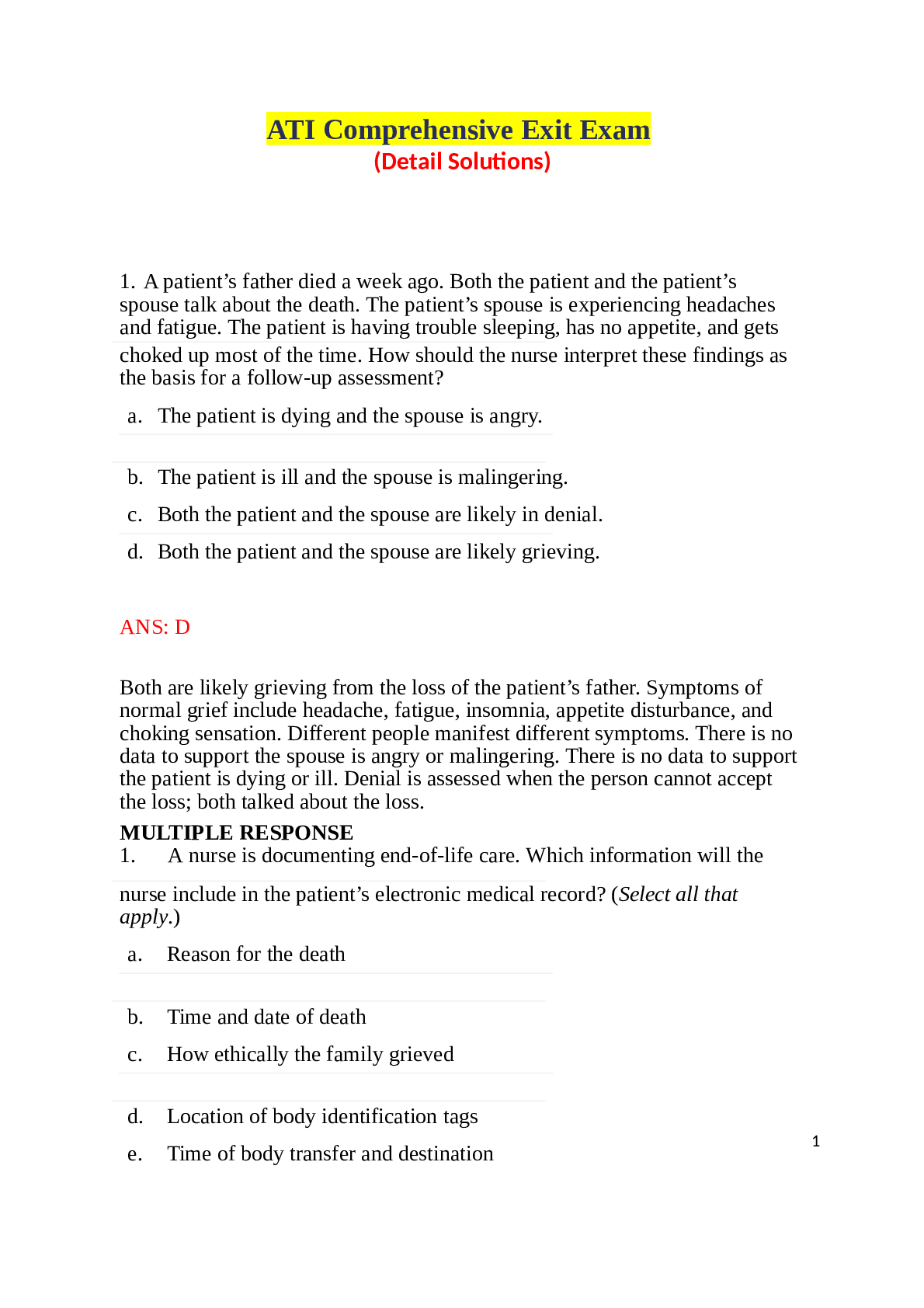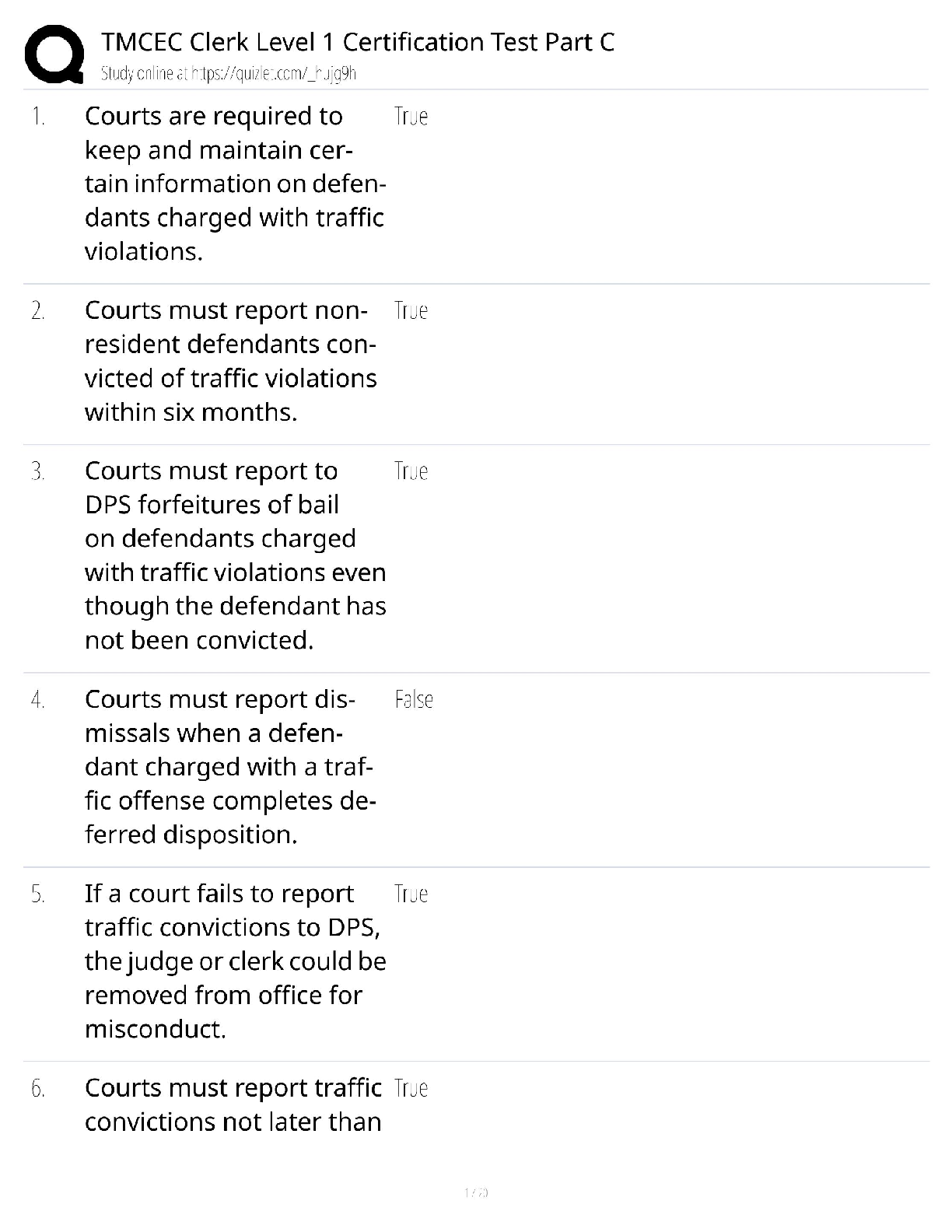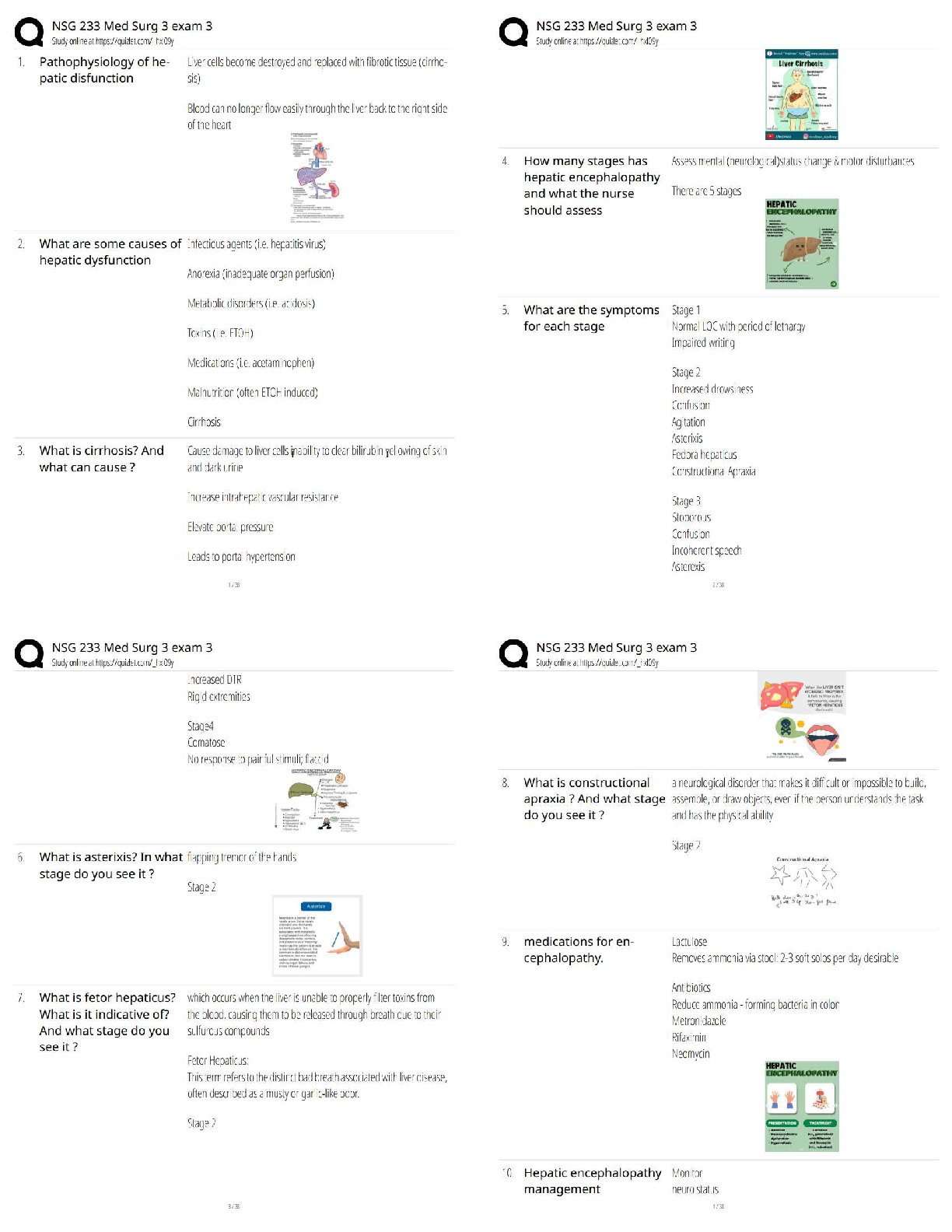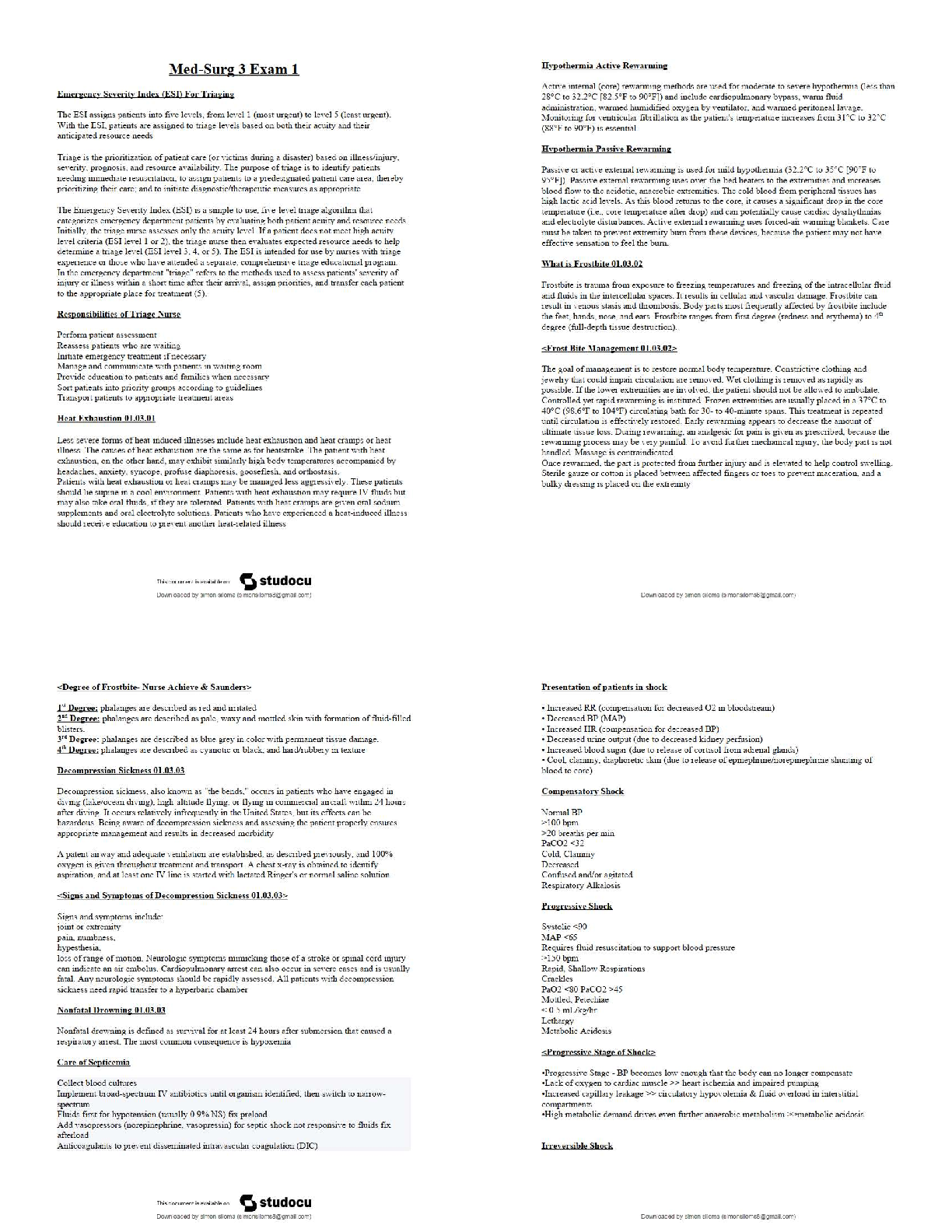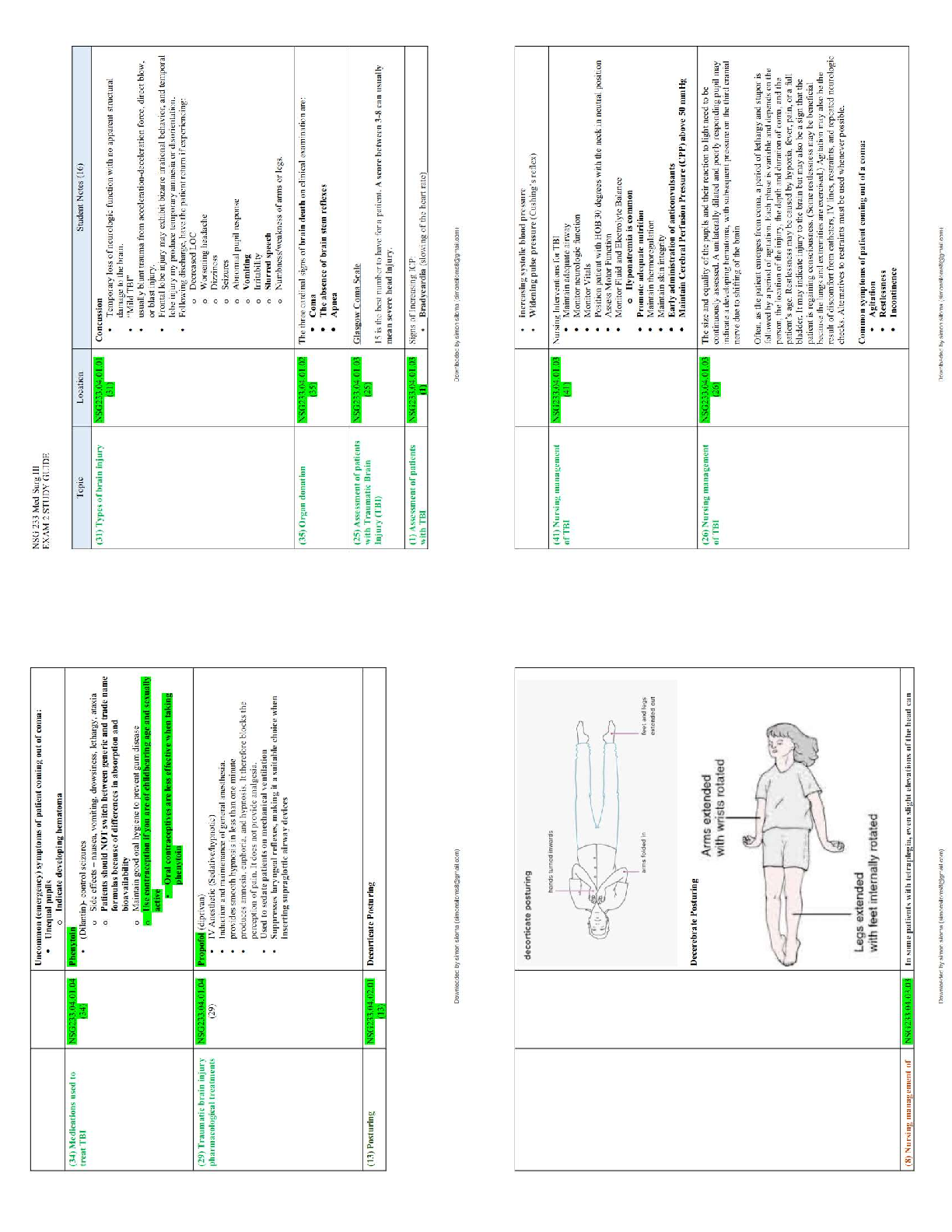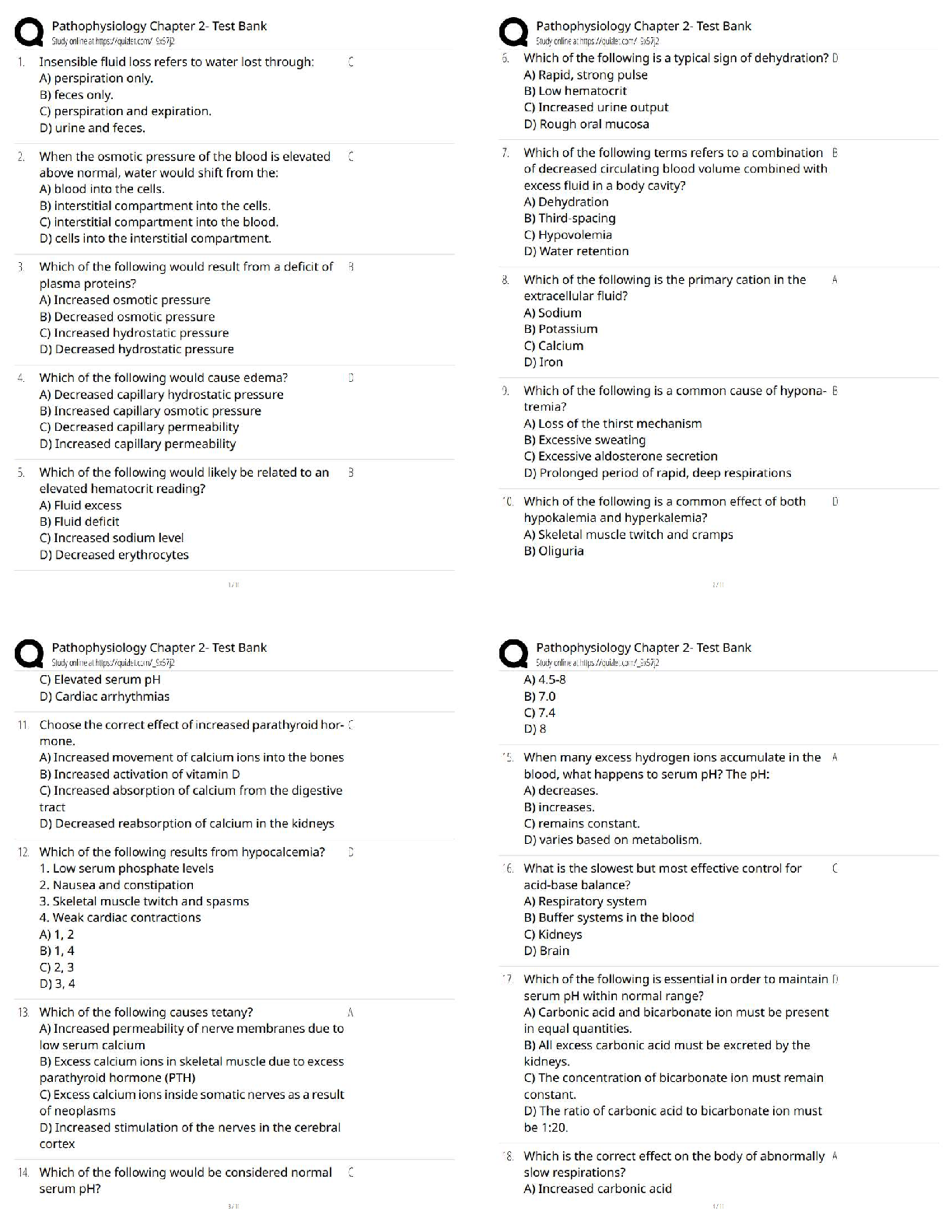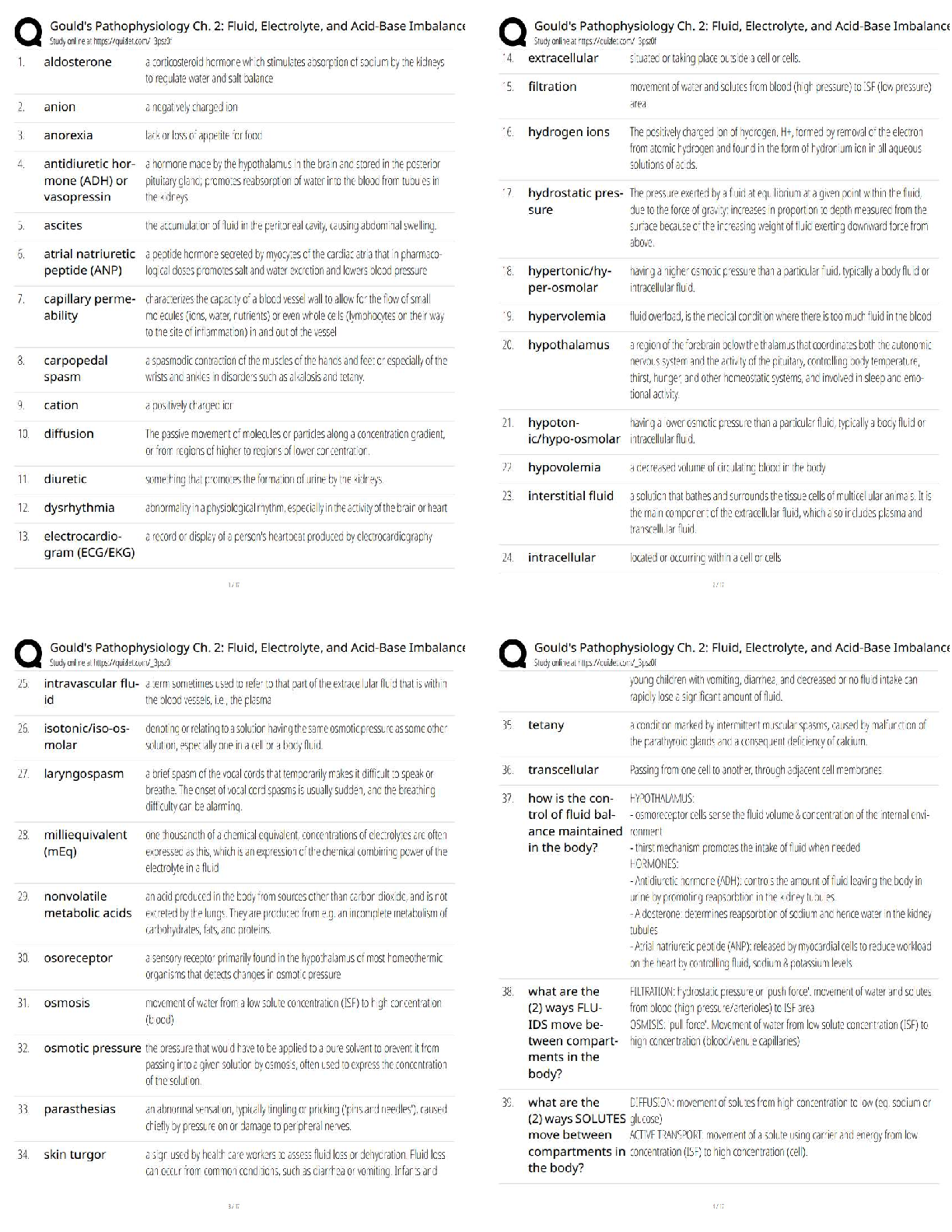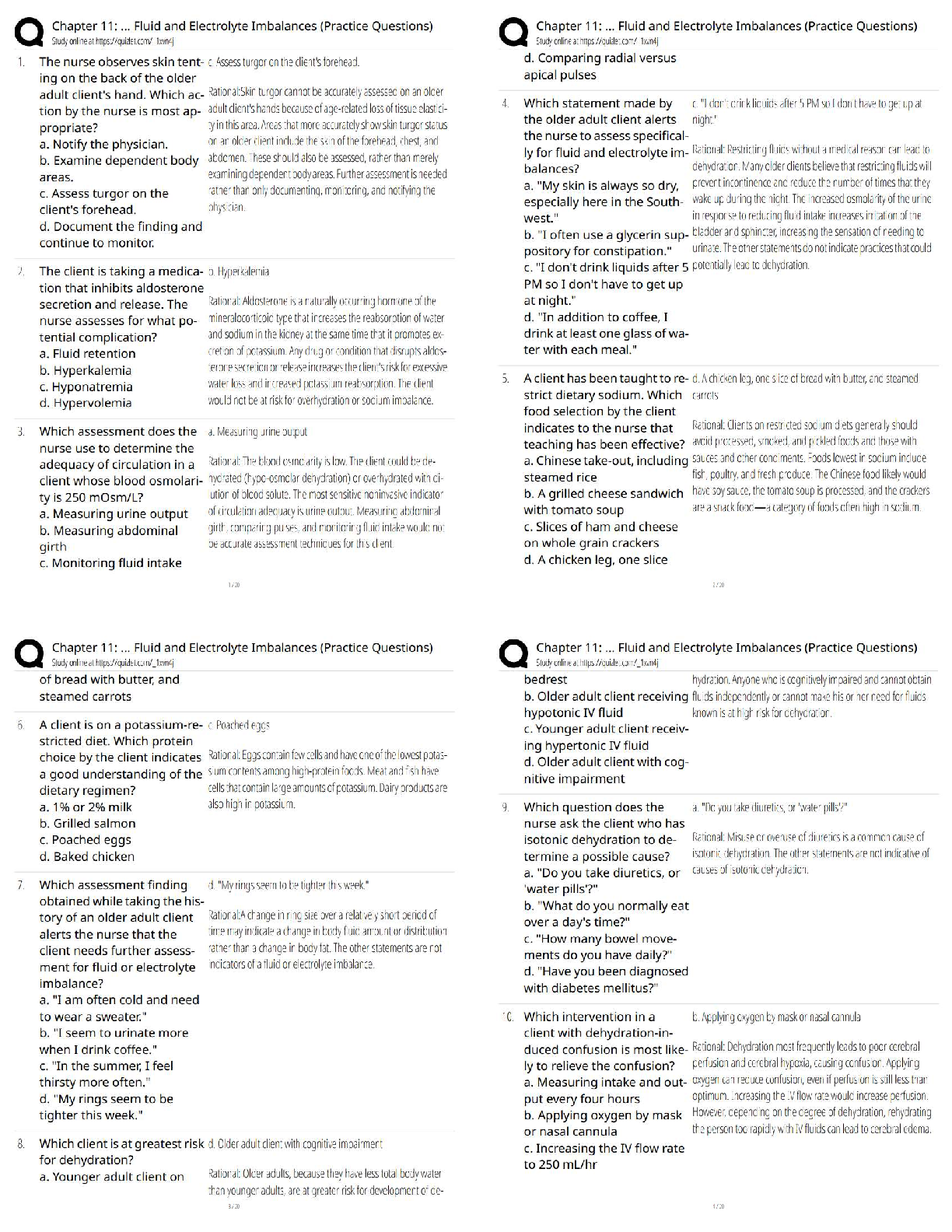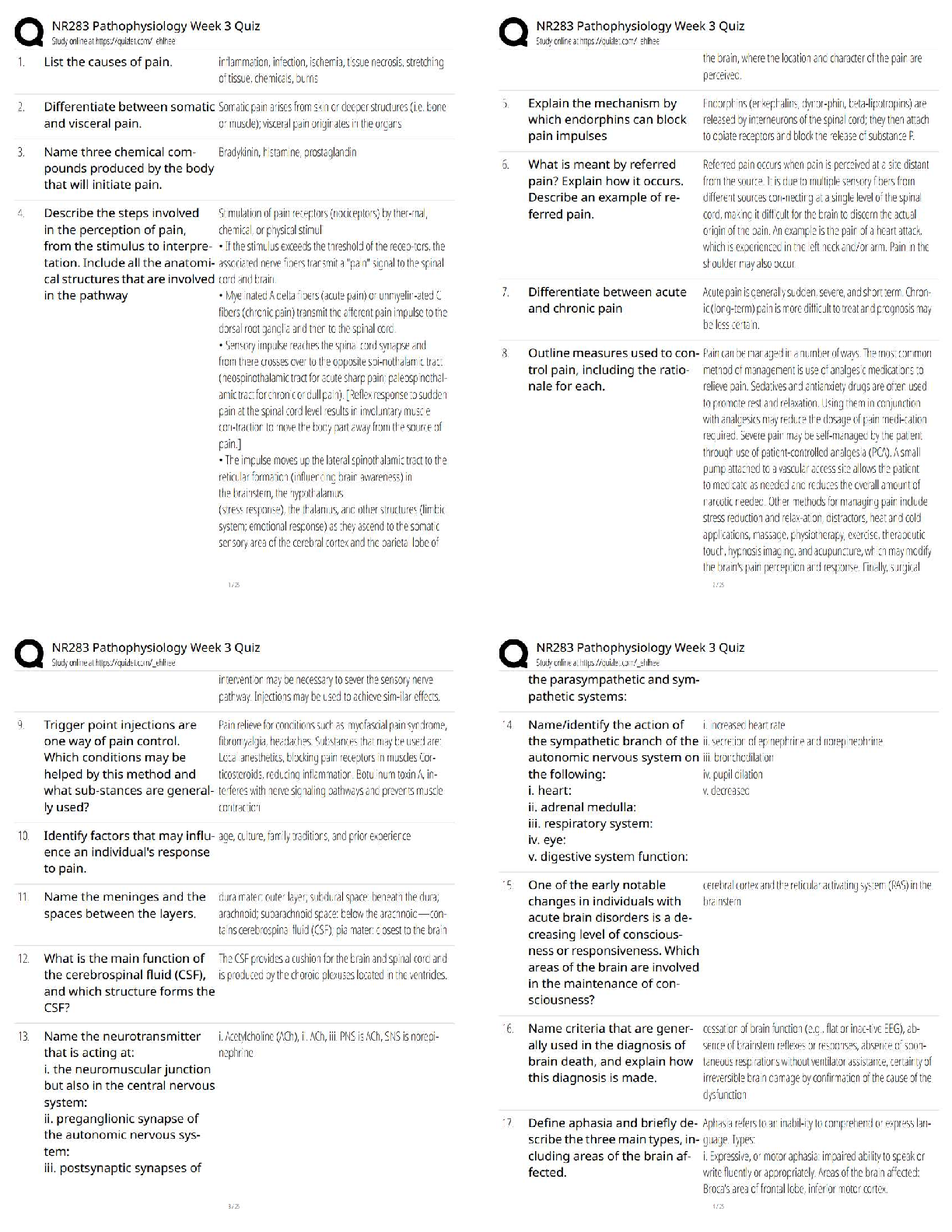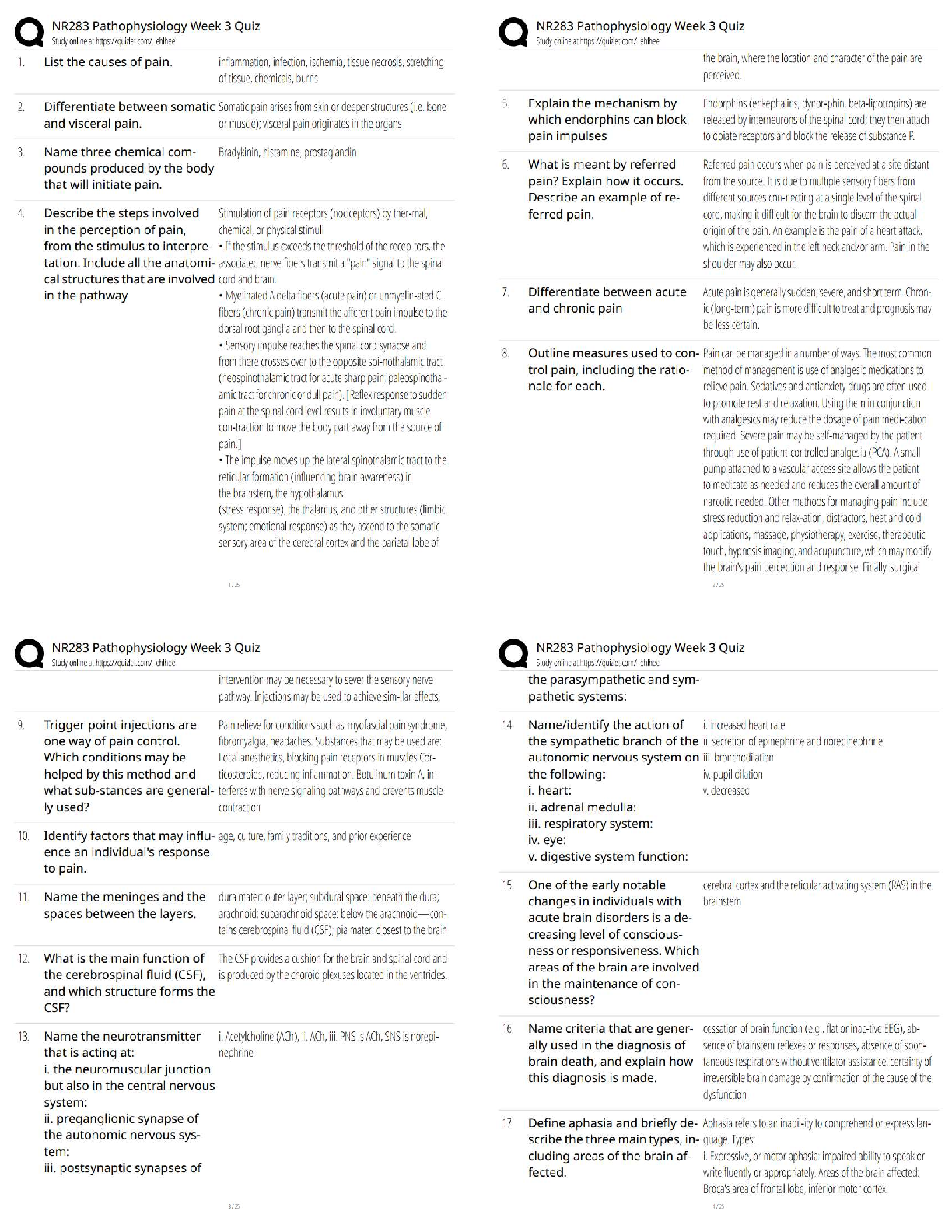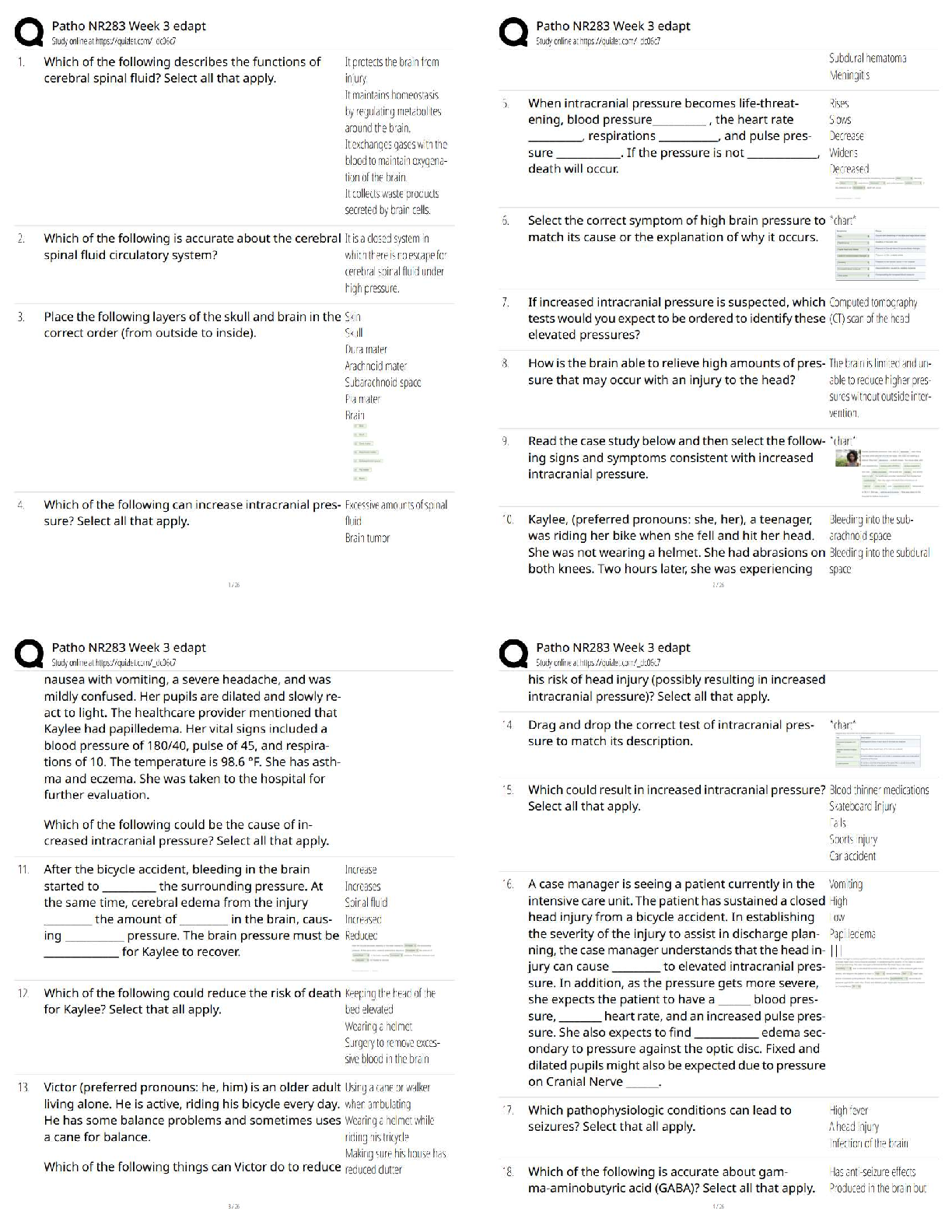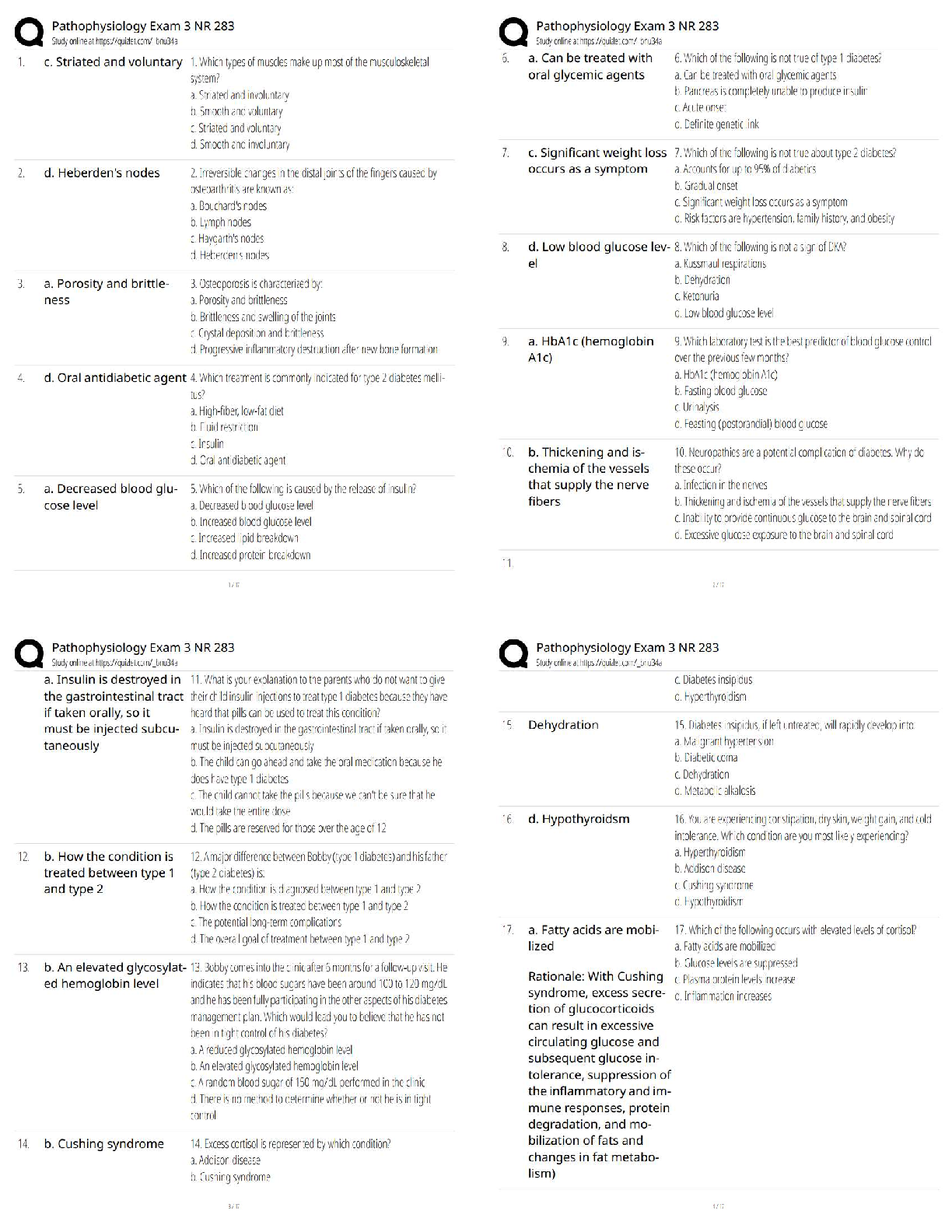Chapter 18. Immune System Function, Assessment,
and Therapeutic Measures
Chapter 18. Immune System Function, Assessment, and Therapeutic Measures
Multiple Choice
Identify the choice that best completes the statement
...
Chapter 18. Immune System Function, Assessment,
and Therapeutic Measures
Chapter 18. Immune System Function, Assessment, and Therapeutic Measures
Multiple Choice
Identify the choice that best completes the statement or answers the question.
____ 1. The nurse determines that a patient has long-term immunity against a disease. Which part of the immune system should the nurse recognize is responsible for this patient’s long-term immunity?
a. IgE
b. IgG
c. Mast cells
d. Plasma cells
____ 2. The nurse is reviewing the immune system prior to discussing the actions with a patient. What type of
cell should the nurse identify that is involved in cell-mediated immunity and has a cytotoxic action on tumor
cells?
a. Lysosomes
b. Memory cells
c. Natural killer cells
d. Histocompatibility cells
____ 3. The nurse is caring for a patient who is experiencing an immune response involving B and T cells. Which
type of immunity is the patient demonstrating?
a. Passive immunity
b. Humoral immunity
c. Acquired immunity
d. Cell-mediated immunity
____ 4. A patient is experiencing an immune response that involves the T lymphocytes. For which types of immunity should the nurse plan care for this patient?
a. Passive immunity
b. Humoral immunity
c. Acquired immunity
d. Cell-mediated immunity
____ 5. The nurse is preparing an injection for an individual who requires passive immunity. In which situation
would passive immunity be indicated?
a. For permanent immunity against a disease
b. To overcome an allergic reaction that is relatively mild
c. To have ready-made antibodies after an exposure to pathogens
d. As a booster dose to stimulate the production of specific antibodies
____ 6. The nurse notes that a patient’s eosinophil level is elevated. For which health problem should the nurse
plan care for this patient?
a. Cancer
b. Allergic reactions
c. Acute viral infections
d. Autoimmune diseases
____ 7. The nurse is administering medications to a patient. Which medications should the nurse understand is
being given to suppress C-reactive protein levels?
a. Aspirin and steroids
b. Antibiotics and diuretics
c. Epinephrine and antihistamines
d. Antihypertensives and antineoplastic agents
____ 8. The nurse is caring for a patient being tested for rheumatoid arthritis. In reviewing laboratory values,
which should the nurse recognize as being diagnostic of rheumatoid arthritis?
a. C-reactive protein = 12 mg/L
b. Rheumatoid factor is negative.
c. White blood cells = 6000/mm3
d. Antinuclear antibody test is negative.
____ 9. The nurse has contributed to a staff education program on immunity. Which participant response indicates a correct understanding of the type of immunity that protects newborns for the first 3 months of life as a
result of maternal transmission of IgG?
a. “Active natural immunity occurs.”
b. “Passive natural immunity occurs.”
c. “Active artificial immunity occurs.”
d. “Passive artificial immunity occurs.”
____ 10. The nurse is reinforcing teaching to a person who has tested positive for HIV. Which test should the
nurse explain is done to confirm the diagnosis of HIV?
a. Western blot
b. Rheumatoid factor
c. Antinuclear antibodies
d. Immunoglobulin assay
____ 11. The nurse is reinforcing teaching to a person being tested for HIV in a clinic. Which test should the
nurse explain is done first in HIV testing?
a. ELISA test
b. Western blot test
c. Viral load studies
d. Rheumatoid factor test
____ 12. The nurse has contributed to an educational program for staff members. Which statement made by a
staff member indicates a correct understanding of how passive immunity is provided?
a. “Having an acute disease.”
b. “Administration of a toxoid.”
c. “Administration of a vaccine.”
d. “Administration of immunoglobulin.”
____ 13. The nurse provides care to older adults. What should the nurse recognize as being more likely to occur
in an older adult than in a younger adult?
a. High fevers
b. Fewer infections
c. More autoimmune disorders
d. Greater antibody production
____ 14. The nurse has administered prescribed allergen injections twice a week for several weeks to an individual with a bee sting allergy. The patient misses three appointments. What action should the nurse take on the
patient’s next visit?
a. Consult physician to confirm the dosage to be given.
b. Administer the same dosage as was given at the last visit.
c. Administer the dosage as originally prescribed for that visit.
d. Tell the patient that the entire immunotherapy schedule needs to be restarted
[Show More]



.png)
.png)
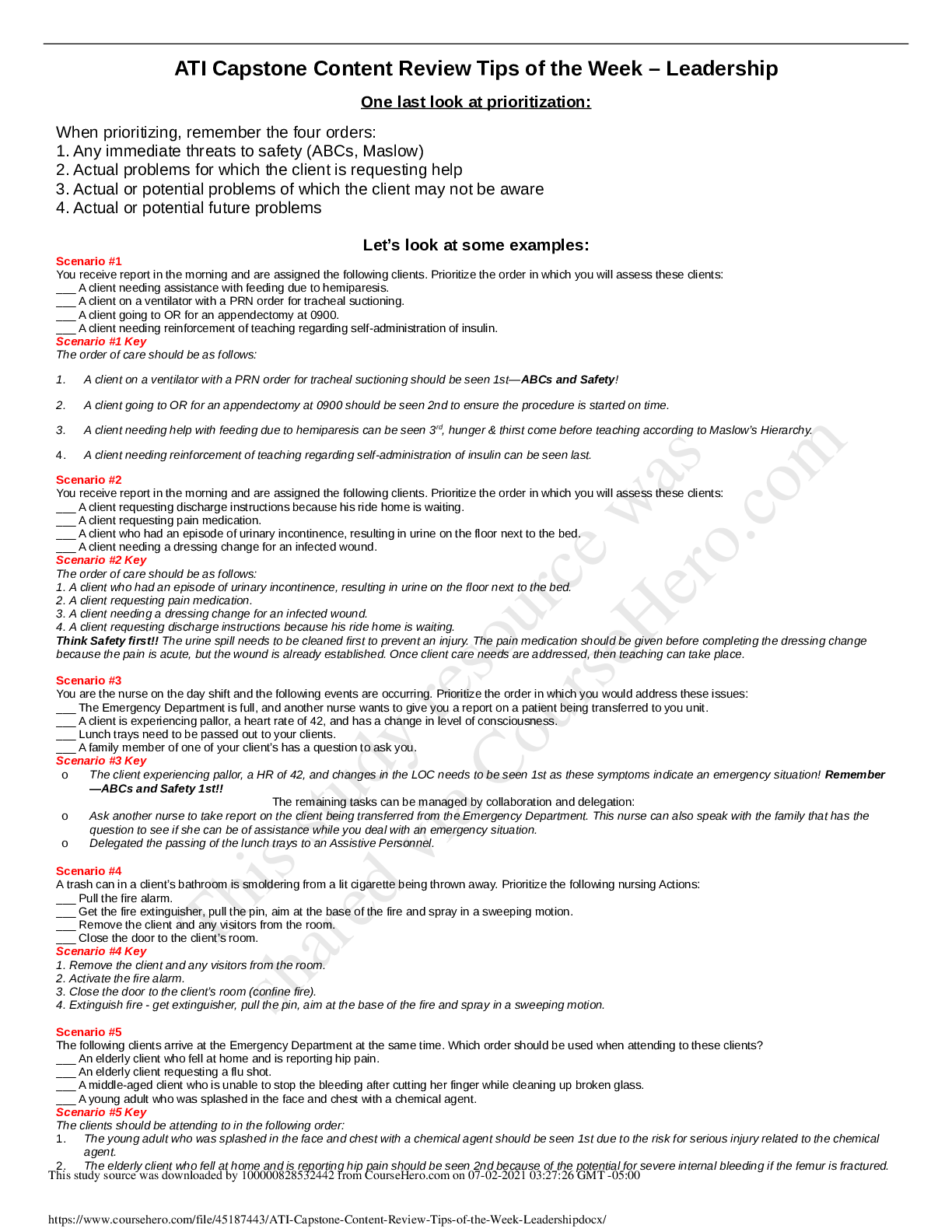

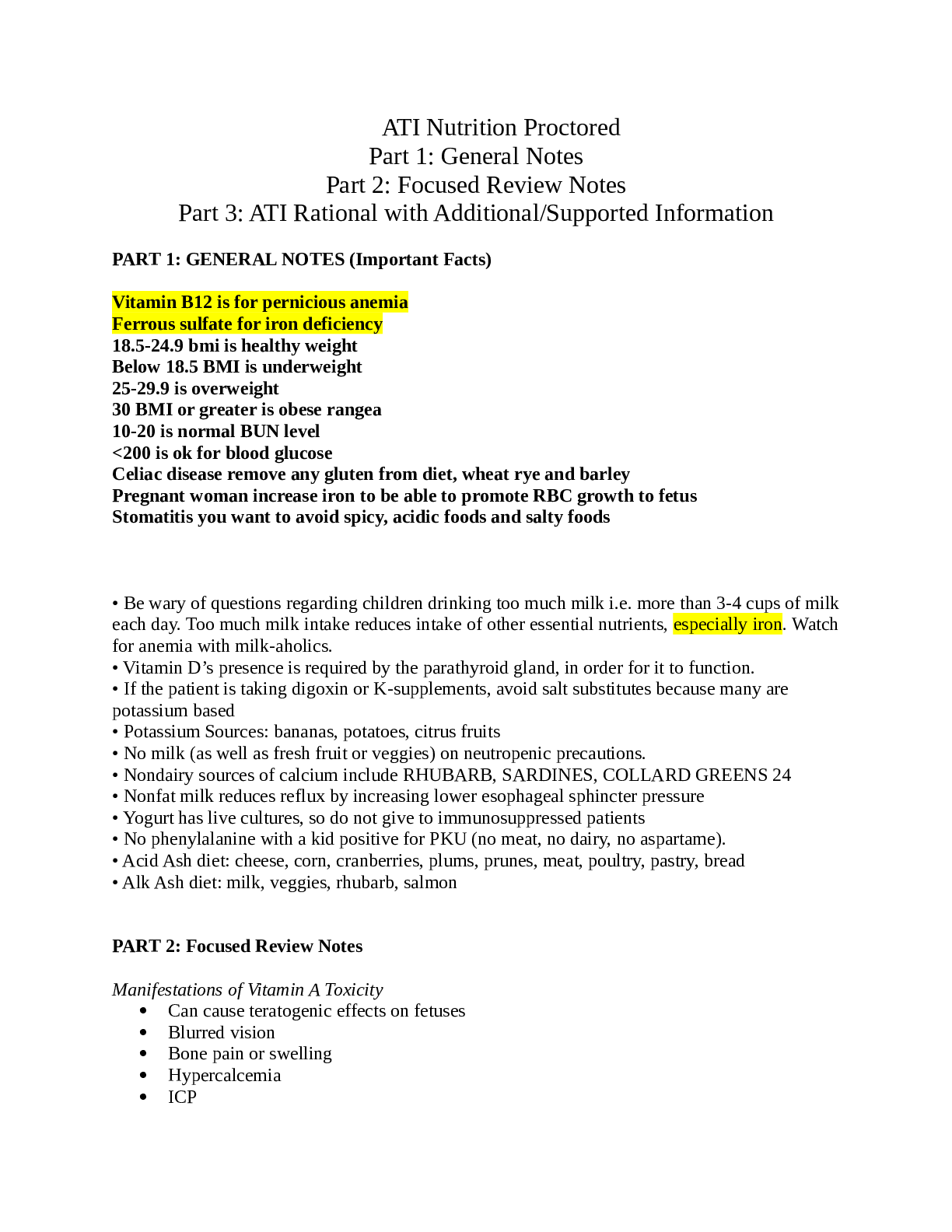
.png)
